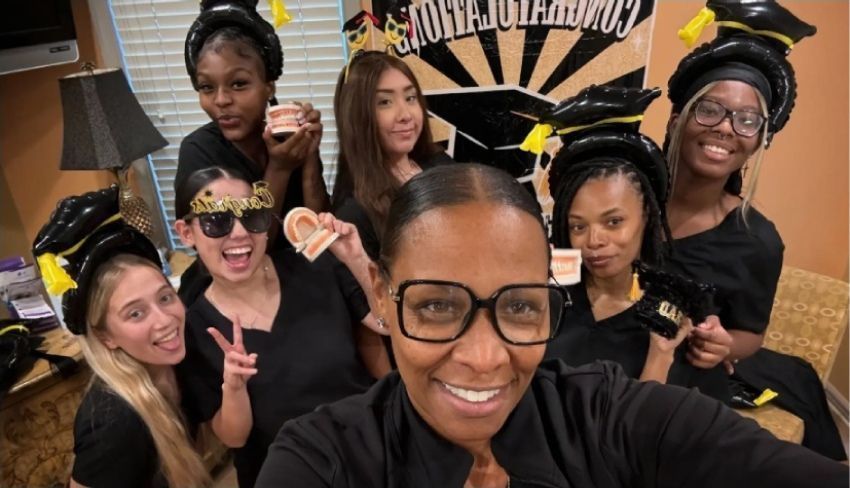Are Dental Assistants in Demand in Chicago?
Chicago’s healthcare sector is expansive, with numerous dental practices, clinics, and specialty offices serving a large metropolitan population. If you’re considering training as a dental assistant at the Chicago Dental Assistant School, one of your top questions is likely: Will there be job opportunities in Chicago when I finish? The answer is yes—and here’s how the numbers, the industry context, and the school’s structure support strong demand for dental assistants in the Chicago region.
From the outset, Chicago’s dental landscape is marked by high patient volume, diversity of services (general dentistry, pediatric, orthodontics, periodontics, oral surgery), and continuous need for efficient support professionals. The Chicago Dental Assistant School offers a 12-week hybrid program, combining weekly hands-on lab sessions in real dental offices with interactive online coursework, and includes a 40-hour externship to bridge theory and real-world practice.
The school charges tuition of $3,690 for the full program, and requires basic prerequisites like being at least 17, having a high school diploma or equivalent, a valid ID, and up-to-date immunization records.
Job Growth & Regional Demand
Dental assisting is projected to grow nationwide, and that trend is reflected in metropolitan areas like Chicago. With population size, aging demographics, and increasing focus on preventive dentistry, dental offices require consistent staffing. Many offices prefer hiring assistants who are trained, certified (or at least competent), and ready to work with minimal onboarding. Chicago’s dense urban market means many practices compete for qualified support staff—and well-trained assistants are in demand.
Moreover, because Chicago has a relatively high cost of living and many dental practices, the local demand tends to outpace available supply of skilled assistants. This favors graduates from local programs like Chicago Dental Assistant School, who already understand local practice workflows, regulations, and networks.
How Chicago Dental Assistant School Prepares You
The structure of the Chicago program aligns closely with employer expectations in the region:
-
Accelerated timeline (12 weeks): Students can enter the job market quickly, minimizing downtime and maximizing return on investment.
-
Hybrid training model: Theory is delivered online, but labs are held in real dental offices, helping students acclimate to the pace and equipment used locally.
-
40-hour externship: Immediately after initial lab training, students get on-the-job experience in a Chicago-area dental office. This exposure builds competence and gives hiring offices confidence in graduates.
-
Comprehensive curriculum: Students train in chairside assisting, temporary crowns, bleach trays, radiographs, impressions, operatory setup and breakdown, infection control, dental anatomy, and more. Graduates thus arrive with a broad skill set.
-
Local network advantage: Because the program operates in and around Chicago, the externship and lab partners are local, making it easier for students to connect directly with hiring practices.
Salary Expectations in Chicago
While salaries vary by neighborhood, specialty, and experience, dental assistants in major metropolitan areas often command higher hourly rates than rural or small-town counterparts. With Chicago’s cost structure, you can expect competitive wages, particularly for assistants who arrive with training, competence, and prior externship exposure. Many offices also provide benefits, performance bonuses, or advancement opportunities.
What Makes This Demand Sustainable
-
Volume of dental practices: There are many general and specialty practices in every part of the city.
-
Patient turnover and preventive care emphasis: Routine cleanings, checkups, x-rays, and follow-ups generate consistent workflow.
-
Staff turnover: Dental assistants often rotate between offices, retire, or advance, so practices constantly need replacements.
-
Expanded dental services and technologies: As practices adopt newer diagnostics, cosmetic dentistry, and expanded treatment modalities, assistant roles grow more complex and needed.
As the program manager would assert:
“We structure our training so graduates are local-ready, with skills Chicago offices need from day one.”
Chris Lofton reinforces this:
“Our aim is to align our programs with regional labor demand so students graduate into opportunity, not uncertainty.”
What You Should Do to Maximize Your Chances
-
Enroll early to secure externship placement in desirable offices.
-
Excel in your hands-on labs and externship—they often serve as audition periods.
-
Network with local dentists and practices while studying.
-
Stay current on dental technologies and regional licensing requirements.
-
Showcase your hybrid training, local exposure, and readiness in job applications.
Chicago’s dental assistant demand is strong, and with the right training, timing, and exposure through Chicago Dental Assistant School, you place yourself in a favorable position to get hired quickly, build experience, and grow a solid career in one of the nation’s most vibrant dental markets.
You're 12 weeks from the dental assistant career you deserve.
